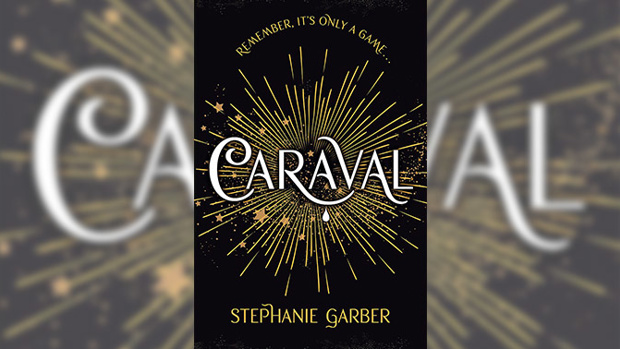Stephanie Jones: Book Review - Caraval by Stephanie Garber
- Publish Date
- Friday, 24 February 2017, 1:02PM

- Author
- By Stephanie Jones
A figurative guillotine sits poised above the unblemished neck of Scarlett Dragna, the heroine of Stephanie Garber’s boisterous fantasy novel Caraval. A half-century into the Elantine Dynasty, Scarlett and her sister Donatella live in Trisda, one of the five conquered isles of the Meridian Empire. Their macro-subjugation is of less immediate difficulty than the iron, and all too twitchy, fists of their father, who takes out his widower’s grief and professional frustrations on his daughters.
As governor, Dragna senior is the most wealthy and powerful citizen of a helpless colony, and he intends to elevate himself to universal respectability by securing the marriage of Scarlett to a count in a faraway land. For Governor Dragna, nobility is the prize; for Scarlett, it’s freedom for herself and her sister. She knows nothing of her betrothed, not even his name, but the threat of fire pales against the present agony of the frying pan.
And suddenly, Caraval. Scarlett has addressed countless unanswered letters to Legend, the creator and curator of a spectacular, week-long annual performance whose participants vie for the grand prize of a single wish. A ticket to Caraval is a prestigious gift, and Scarlett secures three, prompting a secretive flight from Trisda with the aid of a mysterious sailor, Julian, and entry to the performance on Legend’s private, independent island by Julian and the sisters.
Donatella’s disappearance as Caraval begins is the point of the game, Scarlett learns from a letter whose messages change on each reading. This wonderland – and like Alice, Scarlett is apt to happen upon notes affixed to tempting morsels – is one of mystery and magic, where clothes morph from drab to luxe depending on the eye of the beholder. It also harbours no small amount of danger.
The novel has a distinct young-adult tone, but for all Legend’s insistence that his event is a mere game, and everything its players see and hear is make-believe, there’s enough blood and genuine torment, not to mention the baleful prognostications of a fortune-teller, to make Scarlett wonder whether there isn’t an elaborate mind-game being played instead. A dark rumour, that a woman who died in an earlier game was in fact murdered by Legend, takes hold and spreads.
Caraval shares numerous tropes with Suzanne Collins’s dystopian trilogy The Hunger Games: a protective older sister as protagonist; the oppressed people of a futuristic colony; a tiny, starved hope of liberation in a promised land. In both narratives, emancipation can only be achieved by those willing to stand atop the bodies of the vanquished.
There is, if one is inclined to look further for influences, a hint of Rowling too: Garber applies a fierce imagination to the finer details of the game and its setting, and it wouldn’t be surprising, in a Caraval shop filled with timepieces, the floor a mosaic of numbers and the clocks running forwards and backwards, for Scarlett to find a mug of Butterbeer waiting to restore her for the quest. To that point, Caraval’s conclusion, though hopeful, suggests the mission is not yet accomplished, and the world will hear more from the Dragna sisters of Trisda.
Every week Stephanie reviews the Book of the Week.
As the Coast book reviewer, Stephanie Jones shares her thoughts each week on the latest releases.
Stephanie has a BA (Hons) in history and English literature, and a background in journalism, magazine publishing, public relations and corporate and consumer communications.
Stephanie is a contributor to the New Zealand Book Council’s ‘Talking Books’ podcast series (listen here), and a member of the 2016 Ngaio Marsh Award judging panel. She can be found on Twitter @ParsingThePage.

Take your Radio, Podcasts and Music with you

